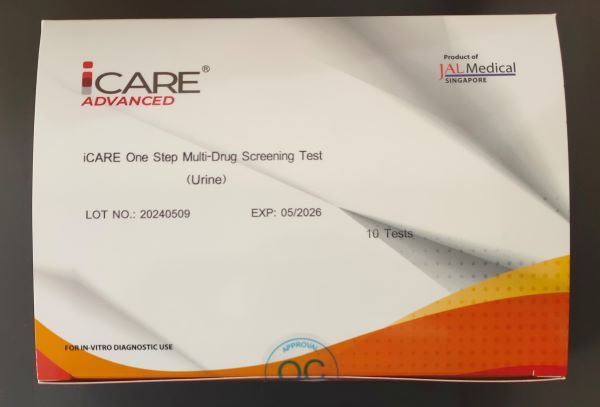Table of Contents
Kazakhstan
Kazakhstan, the largest country in Central Asia, serves as a significant transit route for drug trafficking due to its strategic location. Its vast borders with Russia, China, and other Central Asian countries present challenges for drug control, leading to increased domestic substance abuse. The iCARE One Step Multi-Drug Screening Test is crucial in Kazakhstan’s fight against substance abuse, providing rapid and reliable detection of drug use among high-risk groups. Authorities can efficiently screen individuals in educational institutions, rehabilitation centers, and workplaces to identify drug misuse early on. These efforts are complemented by comprehensive government programs aimed at improving public awareness and providing rehabilitation support. By integrating the iCARE test into broader public health strategies, Kazakhstan can better address the growing challenges of substance abuse, ultimately improving societal health and safety.
Kyrgyzstan
Kyrgyzstan’s mountainous terrain and proximity to Afghanistan make it susceptible to drug trafficking routes, resulting in an increase in drug addiction within its borders. Despite limited resources, the country’s commitment to combatting drug abuse is evident in its adoption of innovative measures like the iCARE One Step Multi-Drug Screening Test. This test provides rapid drug detection in various settings, from medical facilities to law enforcement, enhancing the country’s ability to identify and address substance abuse swiftly. By incorporating this technology into routine health checks and targeted interventions, Kyrgyzstan aims to curb the
rise of drug addiction and its associated health risks. Public health initiatives also focus on education, awareness, and community engagement to prevent drug use, ensuring a holistic approach to combating substance abuse.
Tajikistan
Tajikistan, sharing a long border with Afghanistan, faces significant challenges in drug trafficking, which has contributed to a growing substance abuse issue. The iCARE One Step Multi-Drug Screening Test has become a vital tool in Tajikistan’s public health response, enabling the detection of drug use in clinical, workplace, and educational settings. This swift and accurate testing helps healthcare professionals and authorities to intervene early, providing necessary treatment and support to those affected. The government has also partnered with international organizations to enhance its drug prevention and rehabilitation programs, emphasizing education and community support. These collaborative efforts, supported by technology like the iCARE test, aim to strengthen Tajikistan’s public health framework, reducing the impact of substance abuse on individuals and society.

Turkmenistan
Turkmenistan’s relative isolation hasn’t shielded it from the effects of drug trafficking and substance abuse, necessitating proactive measures to address the emerging crisis. The iCARE One Step Multi-Drug Screening Test is instrumental in the country’s substance abuse prevention strategies, allowing for the quick identification of drug users. Its usage extends across medical facilities, rehabilitation centers, and workplaces, enabling a comprehensive approach to identifying and addressing substance abuse.
Turkmenistan’s public health policies emphasize early intervention, education, and rehabilitation, aiming to reduce the demand for illicit drugs and mitigate their impact. By integrating the iCARE test into these efforts, Turkmenistan can better target at-risk populations and strengthen its overall public health response.
Uzbekistan
As the most populous nation in Central Asia, Uzbekistan faces unique challenges in managing substance abuse, exacerbated by its role as a transit country for drug trafficking. The iCARE One Step Multi-Drug Screening Test offers an effective solution for Uzbekistan’s public health sector, facilitating the rapid detection of various substances. Authorities utilize the test across a range of settings, from hospitals and clinics to law enforcement, to identify drug use efficiently. Uzbekistan’s government has invested heavily in public awareness campaigns and rehabilitation programs to complement these efforts, aiming to reduce the prevalence of substance abuse through education and support. The integration of the iCARE test into the country’s broader public health strategy enhances its ability to combat substance abuse, ensuring better health outcomes for its population.

